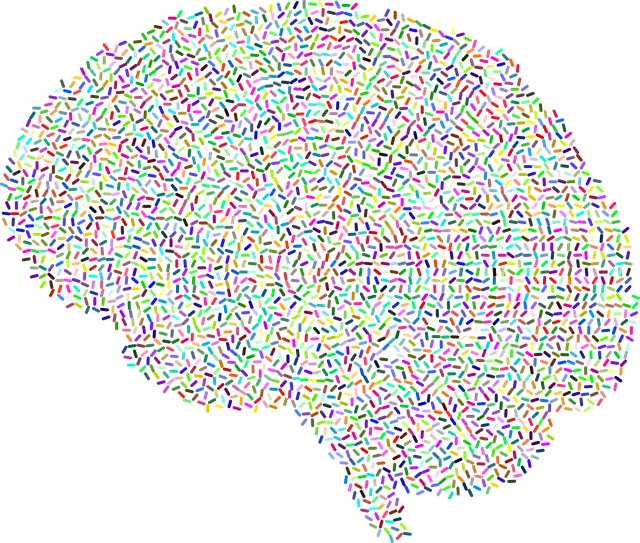Cultural competency in healthcare, as exemplified by Castle Rock Anger Management Therapy, is essential for delivering personalized, equitable care. By recognizing and respecting diverse cultural beliefs, therapists create an inclusive environment that addresses underlying social factors impacting emotional health. Training should focus on mitigating unconscious biases, improving communication skills, and employing evidence-based techniques like Compassion Cultivation and Stress Reduction. Evaluating success through patient outcomes and interactions ensures these initiatives translate to real-world benefits, enhancing the overall quality of care.
Cultural competency training is an essential aspect of modern healthcare, ensuring providers deliver empathetic and effective care to diverse patient populations. This article explores the critical need for such training, highlighting the significant impact of bias and stereotypes on patient interactions. We present a case study of Castle Rock Anger Management Therapy, demonstrating cultural sensitivity in practice. Effective training strategies are discussed, along with methods to measure program success. By examining these components, healthcare organizations can enhance their cultural competency and improve patient outcomes.
- Understanding Cultural Competency in Healthcare: A Necessary Overview
- The Impact of Bias and Stereotypes on Patient Care
- Castle Rock Anger Management Therapy: A Case Study in Cultural Sensitivity
- Effective Strategies for Training Healthcare Providers
- Measuring Success: Evaluating the Effectiveness of Cultural Competency Programs
Understanding Cultural Competency in Healthcare: A Necessary Overview

Cultural competency in healthcare is an essential aspect that often goes unnoticed yet profoundly impacts patient outcomes and provider satisfaction. It involves understanding and appreciating diverse cultural beliefs, values, and behaviors within a healthcare setting. By fostering cultural competency, healthcare providers can offer more personalized and effective care, bridging the gap between patients from various backgrounds and medical professionals.
In today’s diverse society, where patients come from different ethnic, racial, and cultural groups, it is crucial for healthcare providers, especially those offering Castle Rock Anger Management Therapy, to be equipped with the necessary tools for navigating these complexities. This includes developing coping skills, crisis intervention guidance, and burnout prevention strategies that respect and accommodate individual cultural identities. Such training ensures that patients receive care that aligns with their unique cultural contexts, promoting better health outcomes and fostering a more inclusive healthcare environment.
The Impact of Bias and Stereotypes on Patient Care

Unconscious biases and stereotypes held by healthcare providers can significantly impact patient care, leading to disparities in treatment and outcomes. These biases may stem from a variety of sources, including personal experiences, cultural norms, or societal conditioning. When left unaddressed, they can result in misdiagnoses, inappropriate referrals, and even discrimination against certain patient populations. For instance, stereotyping based on race or ethnicity might cause healthcare professionals to overlook or minimize symptoms presented by minority patients, hindering access to effective treatments like Castle Rock Anger Management Therapy for underlying conditions such as stress management, depression prevention, and mood management.
Understanding the influence of biases is crucial in promoting equitable care. Healthcare provider training should emphasize cultural competency to recognize and mitigate these influences. By learning to challenge stereotypes and be mindful of their assumptions, professionals can ensure every patient receives personalized, unbiased attention. This shift in approach fosters an environment where diverse patient needs are met with sensitivity, ultimately enhancing the quality of care.
Castle Rock Anger Management Therapy: A Case Study in Cultural Sensitivity

Castle Rock Anger Management Therapy serves as a compelling case study demonstrating the importance of cultural sensitivity in healthcare. This therapeutic approach, tailored to address anger-related issues, recognizes that every individual carries unique cultural baggage which significantly influences their emotional responses and communication patterns. By incorporating culturally sensitive practices, therapists at Castle Rock go beyond mere treatment; they foster an environment of understanding and trust, essential for effective coping skills development and resilience building among diverse patient populations.
The program’s success lies in its holistic approach that integrates cultural competency into the core of anger management strategies. Through this, healthcare providers are equipped with burnout prevention strategies crucial for navigating complex cultural dynamics. By learning to adapt their practices to respect and accommodate different cultural norms, therapists at Castle Rock not only enhance patient outcomes but also contribute to a more inclusive and compassionate healthcare system, ultimately addressing not just symptoms, but the underlying social and cultural factors that shape an individual’s emotional health.
Effective Strategies for Training Healthcare Providers

Effective cultural competency training for healthcare providers involves a multi-faceted approach. One key strategy is integrating Castle Rock Anger Management Therapy techniques into the curriculum, as managing emotional reactions is crucial when interacting with diverse patient populations. By teaching providers how to recognize and control their anger or frustration, especially in high-stress situations, they can improve communication and build stronger therapeutic alliances.
Incorporating depression prevention strategies is another essential component. This includes raising awareness about cultural differences in expressing and understanding mental health issues, such as non-Western concepts of depression. Social skills training should be tailored to enhance cultural sensitivity in mental healthcare practice, fostering empathic listening and adaptive communication styles that respect diverse backgrounds. These approaches collectively contribute to creating a more inclusive and effective healthcare environment.
Measuring Success: Evaluating the Effectiveness of Cultural Competency Programs

Measuring success in healthcare provider cultural competency training is paramount to ensure programs are effectively fostering change. Evaluation methods should go beyond mere satisfaction surveys, delving into concrete improvements in patient outcomes and interactions. This could involve tracking changes in diagnosis accuracy, treatment adherence, and patient satisfaction, specifically within diverse populations previously underserved or misserved by the healthcare system.
For instance, at Castle Rock Anger Management Therapy, they’ve integrated Compassion Cultivation Practices and Stress Reduction Methods into their training programs, alongside Mental Wellness Coaching. By measuring reductions in aggressive outbursts among patients and improvements in healthcare providers’ cultural sensitivity scores over time, they can demonstrate program effectiveness. This data-driven approach ensures that the initiatives are not just theoretical but translate to real-world benefits for both patients and practitioners.
Healthcare provider cultural competency training is no longer a consideration, but an imperative. As seen in the case study of Castle Rock Anger Management Therapy, culturally sensitive approaches significantly enhance patient care and outcomes. By understanding the impact of bias and stereotypes, healthcare professionals can navigate diverse patient populations more effectively. Implementing proven training strategies and measuring program success through evaluation ensures that cultural competency becomes an integral part of healthcare delivery, ultimately fostering better relationships and improved health outcomes for all.













